and it will.
Ernest Hemingway
St. Mary’s
June 16 1961
All about Hemingway
and it will.
Ernest Hemingway
St. Mary’s
June 16 1961
New Discovery!
Hemingway writer and scholar, Curtis DeBerg, has brought forward an amazing note of Hemingway history that gives us insight, raises questions, and informs what we may think about Hemingway’s end.
In a New York Times Article published January 23, 2026, John Rosengren covers the discovery of an inscription that Hemingway wrote by hand on June 16, 1961. He killed himself on July 2, 1961 with a gunshot. Hemingway who was at the Mayo Clinic receiving treatment for depression at the time he wrote an inscription in “The Old Man & The Sea” to one of the nuns who was caring for him named Sister Immaculata. For those of us who read and love Hemingway, it is profound. It reads as follows:
“ To Sister Immaculata: this book, hoping to write another one as good for her when my writing luck is running well again, and it will.”
Ernest Hemingway, St. Mary’s, June 16, 1961”
Hemingway entered a psychiatric unit at St. Mary’s Hospital affiliated with the Mayo Clinic in November of 1960 and stayed until almost the end of January 1961. He received electroshock therapy and returned to the facility in April 1961 for additional care. The public was unaware of his condition and his wife Mary signed him in claiming it was for high blood pressure.
Hemingway was released by the chief psychiatrist claiming that he was well enough to go home. He lived in Idaho at that point.
Here is where Curtis DeBerg comes in. The book appears to have been largely forgotten until 5 years ago when one of the Sisters mentioned it to Curt who was doing research at the Mayo Clinic. At the time, Curt thought, “Was he kidding himself thinking he was going to be able to write again after all those electroshock treatments or is he thinking in the back of his mind “I’ll never write another book like this.””
Until now, the book with its inscription was locked up and largely forgotten on the shelves in the library at St. Mary’s Hospital. Five years ago, one of the Sisters mentioned it to Curtis DeBerg who has written two books about Hemingway and was doing research at the Mayo Clinic. DeBerg who wrote “Traveling the World with Hemingway” and the more recent “Wrestling with Demons” also about Hemingway, appropriately said more people should see this and it’s a part of very important Hemingway history.
DeBerg wonders if Hemingway was kidding himself thinking he was going to be able to write again after all those electric shock treatments or was he thinking in the back of his mind “I’ll never write another book like this.” He also ponders if the sunniness of the note was designed to convince the Mayo Clinic doctors that he was ready for release which he was not.
When DeBerg toured the Nobel Prize museum and learned it had no Hemingway artifacts he suggested the Franciscans donate at St. Mary’s the book. The order’s Leadership Counselor agreed to do so and turned it over to DeBerg in November. At the ceremony in Sweden on January 23, DeBerg discussed the inscription’s significance and it will now rest at the museum.
Endless gratitude to Curtis DeBerg for seeing the book and its inscription and making it known to the rest of the world. Even in his despair or hope depending on how you see this, Hemingway showed kindness and gratitude to Sister Immaculata which was the flipside of his aggressive side and what I like to think is his true, mid-western nature.
What a find! So much to think about and discuss.
With much gratitude to Curt who brought this to my attention. Thank you, Curt, for your dedication to Hemingway’s memory.

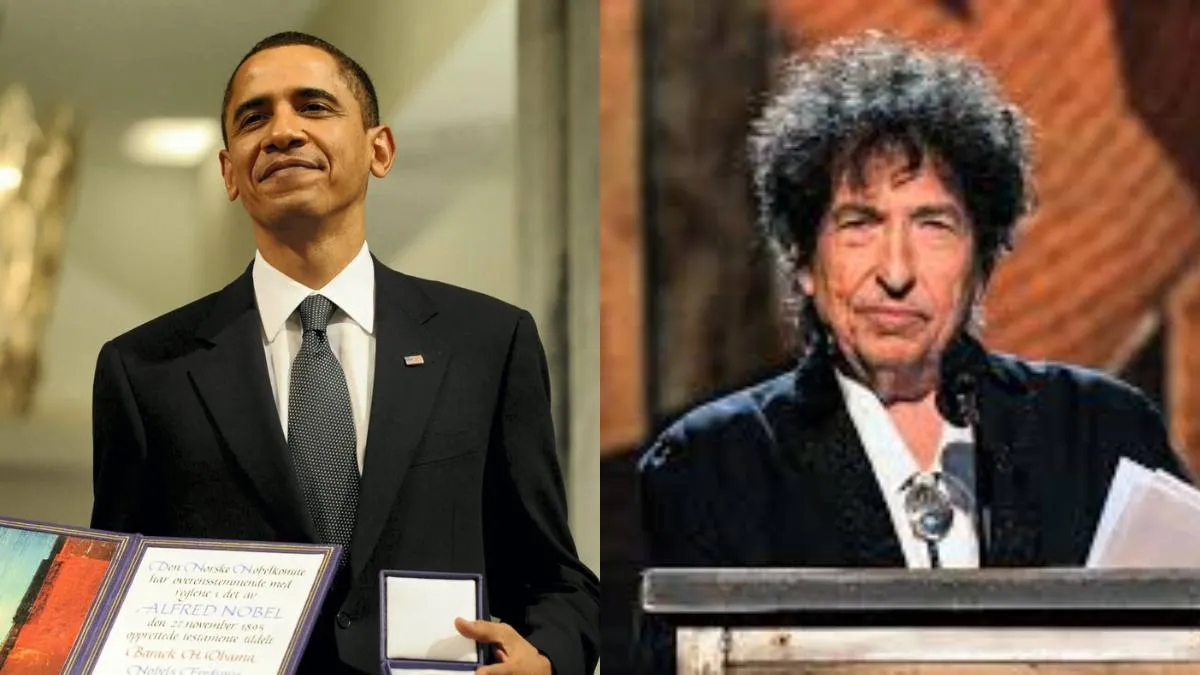
Famous American Nobel Prize Winners
Each Nobel laureate has improved the state of human knowledge and inspired each new generation to dream a little bigger and achieve more towards making the world a better place. The following list of the top 10 famous American Nobel prize winners highlights the remarkable accomplishments and lasting legacies of those shifted the course of history through their brilliance and purpose.
Here are the top 10 famous americans who have won nobel prize along with the year of their achievement and field in which they have specialised:
|
No. |
Name |
Year |
Field |
|
1 |
Martin Luther King Jr. |
1964 |
Nobel Peace Prize |
|
2 |
Barack Obama |
2009 |
Nobel Peace Prize |
|
3 |
Ernest Hemingway |
1954 |
Nobel Prize in Literature |
|
4 |
Richard P. Feynman |
1965 |
Nobel Prize in Physics |
|
5 |
John Bardeen |
1956 & 1972 |
Nobel Prize in Physics |
|
6 |
Bob Dylan |
2016 |
Nobel Prize in Literature |
|
7 |
Toni Morrison |
1993 |
Nobel Prize in Literature |
|
8 |
Albert A. Michelson |
1907 |
Nobel Prize in Physics |
|
9 |
Henry Kissinger |
1973 |
Nobel Peace Prize |
|
10 |
Frances H. Arnold |
2018 |
Nobel Prize in Chemistry |
Dr. Martin Luther King Jr. received the Nobel recognition Nobel Peace Prize for his nonviolent fight against racial injustice and segregation in the United States. Through his example as a gifted orator and a leader of the Civil Rights Movement, he personified the ideals of human rights, justice, and treatment commensurate with equality and peace around the globe. King’s inspired words and nonviolent action made him a universal moral voice of the age and etched his legacy in the U.S. and world history.
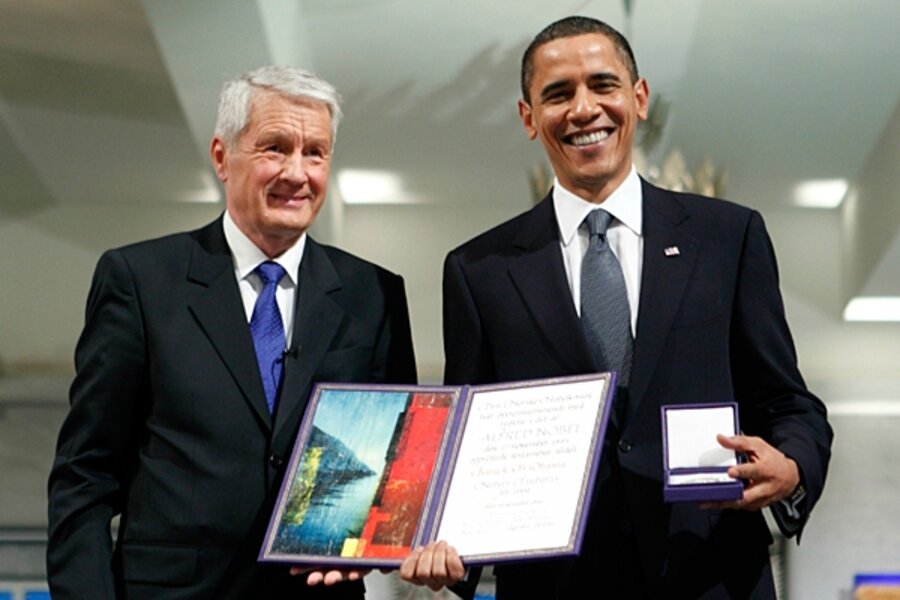
Barack Obama was awarded the Nobel Peace Prize for his efforts to strengthen diplomatic relations and collaboration among countries. He was recognized for his vision of a future where nations would not possess nuclear weapons or be defined by borders.
Obama emphasized the need for dialogue rather than the pursuit of war and fought for the ideals of hope and change. He promoted peace, dialogue with inclusion, and finding avenues for cooperation and commonality to the forefront of the world stage.
For his remarkable prose and simple style, Ernest Hemingway received the Nobel Prize in Literature, particularly spotlighted through The Old Man and the Sea. Hemingway’s stories displayed themes of courage, perseverance, and struggles of humanity.
His distinctive style changed the course of modern stories, and influenced both writers and readers throughout the generations, through his straight forward style of a powerful story that portrayed the truth of dealing with life and humanity.
Famous physicist Richard P. Feynman received the Nobel Prize in Physics for his transformative research quantum electrodynamics. His research changed the way particles behaved and interacted with electromagnetic behaviors in particles.
Along with his research, Feynman became famous for his entertaining and informative lectures, his quick wit, as well as the spirit of curiosity-driven science. Feynman became an inspiration for countless generations of students and scientists in college and universities to examine the universe with creativity and wonder leading to a lasting impact on physics.

John Bardeen is the only person ever to be awarded the Nobel Prize in Physics, twice. The first was awarded for his invention of the transistor, which changed the electronics industry and eventually opened the door to modern computing. The second honored his theory of superconductivity. Bardeen’s inventions changed technology and industry and positioned him as one of the most important scientists in modern history.
Show all 4




Dressed in the traditional bull runner’s garb of a white shirt and red neck-scarf, Yomara Martínez, 30, sprinted in the death-defying morning run or “encierros” taking place this week in the northern Spanish city of Pamplona.
Yet despite being in a crowd of thousands, Martínez was among only a handful of women daredevils running with the stampeding bulls at the San Fermín Festival.
“At the end of the day, the bull doesn’t know about sexes, age or body shape,” Martinez said. “It doesn’t matter if you are woman.”
Women bull runners are rare, though Martínez and other women taking part in the adrenaline-fueled tradition as more than mere spectators say it’s growing in popularity.
“There are times I feel small. And ask myself ‘what am I doing here?’ Because, although you may not want to, you do feel slightly inferior because of your physique,” said 32-year-old Sara Puñal, an administrator who took part in Sunday’s run.
“But in the moment, you are all equal,” Puñal said of the run.
The bulls pound along the twisting cobblestone streets after being led by six steers. Up to 4,000 runners take part in each bull run, which takes place over 846 meters (2,775 feet) and can last two to four minutes.
The expert Spanish runners try to sprint just in front of the bull’s horns for a few seconds while egging the animal on with a rolled newspaper. Gorings are not rare, but many more people are bruised and injured in falls and pileups with each other.
“I think many have a desire to see what it feels like but they don’t try because of fear,” said Paula López, 32, a shop assistant who also took part in a run earlier in the week. López said she grew up in the masculine world of bull fighting. She wasn’t fazed by how few women take part in the event.
“It’s complicated, but it is pretty exciting,” López said.
The event’s reputation took a hit years ago following complaints by women about having suffered sexual harassment and abuse from revelers.
In 2016, five men raped an 18-year-old woman during the festival in an infamous case that sparked an outcry across Spain. The men, who had a WhatsApp group named “La Manada,” or “The Animal Pack,” were imprisoned for 15 years by the Supreme Court in 2019.
Since then, organizers have said they’ve stepped up security measures.
Women didn’t participate in the bull runs until 1975 due to a decree repealed one year earlier that prohibited women, children and the elderly from being in the streets where the bulls run during the festival.
The spectacle was made internationally famous by Ernest Hemingway’s classic 1926 novel “The Sun Also Rises,” about American bohemians wasting away in Europe.
——
Naishadham reported from Madrid.
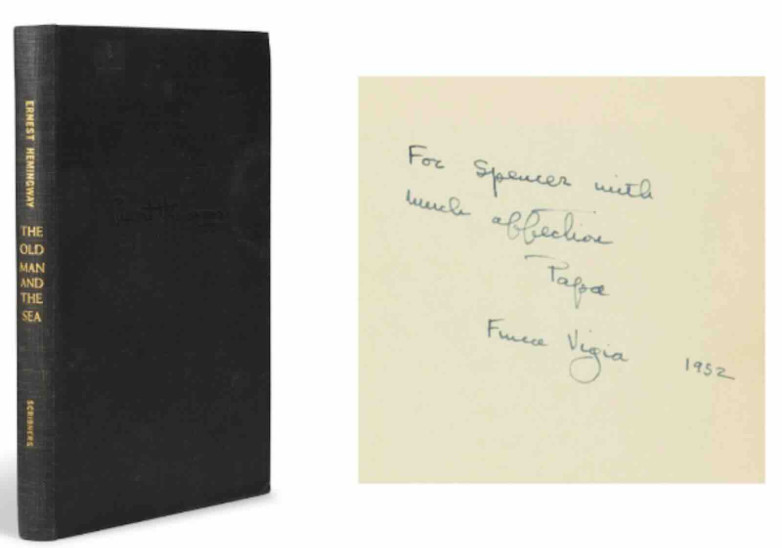
Ernest Hemingway’s The Old Man and the Sea with inscription to Spencer Tracy
Leading Bonhams’ ‘white glove’ Spencer Tracy: Collection of a Screen Icon auction was an advance issue presentation copy of The Old Man and the Sea by Ernest Hemingwaywhich soared to more than 55 times its estimate when it sold for $83,050.
One of only 30 pre-publication copies printed in August 1952, this example is one of just two known copies inscribed by Hemingway bearing a personal inscription to Spencer Tracy who would later portray Santiago in the 1958 film adaptation.
Other major standouts from the sale included:
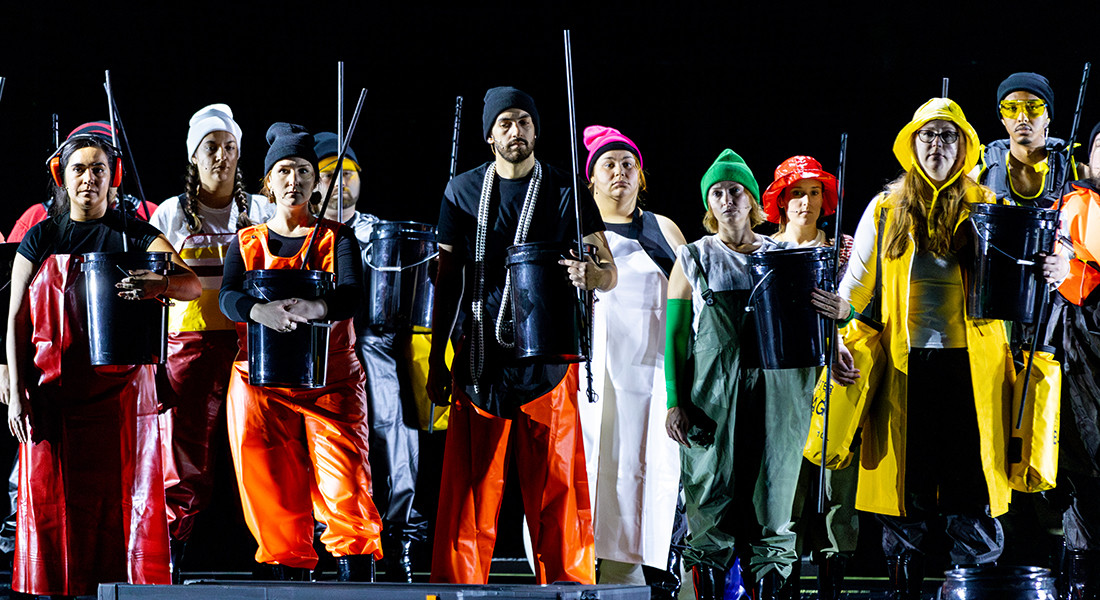
 |
Franny Lazarus
Ohio State News
|
Opera fans know the names of the medium’s greats: Puccini, Mozart, Verdi. But what about Hemingway?
On Oct. 10 and 12, visitors to the Wexner Center for the Arts at The Ohio State University can see an opera adaptation of “The Old Man and the Sea,” one of Ernest Hemingway’s novellas.
“When Beth Morrison Projects first pitched “The Old Man and the Sea,” I immediately knew it was the perfect piece for our first collaboration with the Wexner Center,” said Julia Noulin-Mérat, general director and chief executive officer of Opera Columbus. “What captivated me was how it blends cinematic video design with a meditative score – it feels as much like an immersive art installation as an opera. Partnering with the Wexner Center for the Arts and Ohio State makes perfect sense because this production lives at the intersection of opera, film and contemporary art.”
The show first ran in 2023 at Arizona State University’s Gammage Auditorium. Elena Perantoni, senior producer at the Wexner Center, saw it last year in Chapel Hill, North Carolina.
“I was floored,” she said. “This is contemporary opera. It is engaging in the way we want contemporary art to be: a commentary on our current lives and our world.”
The 90-minute opera, by Paola Prestini, Royce Vavrek and Karmina Šilec, is based on Hemingway’s story about a fisherman chasing one last catch. Interspersed through the original story are portraits of everyday life that examine aging, legacy and humanity’s relationship with the ocean.
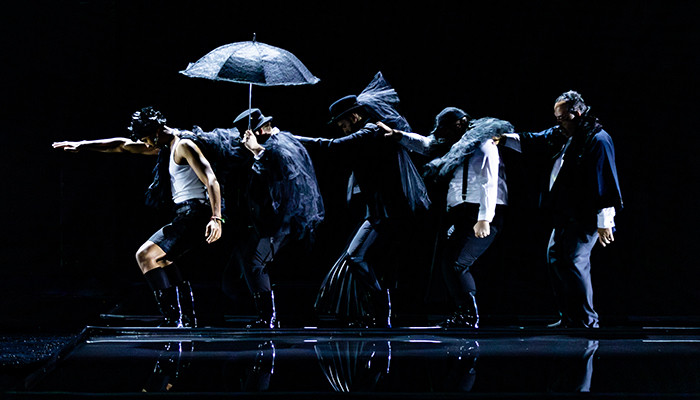
The performance could not have come to Columbus without internal and external partnerships, Perantoni said. Co-presented by the Wexner Center and Opera Columbus, the piece is also produced by the Beth Morrison Projects.
Inside the university, the Wexner Center was joined by the Office of Academic Affairs and the School of Music in developing the performance opportunity.
“This breathtaking production is a perfect extension of the many ways in which the Wexner Center for the Arts supports students and faculty. We are committed to inviting and ensuring that our campus communities are engaged with every part of the multidisciplinary contemporary works of art that we carefully choose to present,” said Gaëtane Verna, executive director of the Wexner Center. “Co-producing with Opera Columbus and receiving the invaluable financial support of the Office of Academic Affairs was essential to our ability to present and share this bold and captivating new original production from Beth Morrison Projects, which reimagines Hemingway’s iconic story from a new perspective.”
Music students had a special opportunity.
“In addition to the four main characters, there is a chorus of 16 people,” Perantoni said. “Many of those roles are cast locally, including from the School of Music. The others are community members with ties to the university – alumni, faculty, staff and others.”
Increasing student access to artists is a focus for Perantoni, she said.
“How can we bring students in to see how artists work? How can we bring artists to classrooms to talk to students?” she said. “We’ve had a lot of luck with that kind of engagement. We look for every opportunity where students can engage with artists. It’s a core part of the Wexner Center.”
Sidra Bell, graduate research associate in the university’s dance department and The Wex’s presenting team, serves as an artistic collaborator with the directing team. She has been with the production since its early days in 2023 and has worked for director Karmina Šilec as a consultant since 2015.
By including locals in each performance, she said, the show has a specific flavor.
“It’s exciting that every city has a different chorus,” she said. “The leads stay the same. The show becomes this web of new perspectives.”
The staging of the show is also different from a typical opera. Actors move around, and sometimes in, pools of water.
“There is quite a bit of water on the stage,” Perantoni said. “That’s a technician’s worst nightmare. Microphones and electrical cords don’t mix with water. Luckily, Beth Morrison Projects has already figured this out. We’ve kept everyone safe.”
Bell took special care to mitigate risk for the dancers interacting with the water on stage.
“There’s always risk in movement work,” she said. “To avoid injury, the chorus is organized in a specific way and follows a specific path.”
Audience members don’t need to worry about bringing plastic ponchos, Perantoni said.
“No water comes off the stage,” she said. “There’s no splash zone.”
Performances like this are why Bell came to Ohio State to pursue her doctorate.
“Ohio State has this reputation of being on the cutting edge of dance,” she said. “There’s a lot of opportunity here.”
In fact, Bell’s coursework allows her to appreciate her opera experience from an academic perspective as well as a creative one.
“I’m taking a music history class and we’re getting into the origins of opera,” she said. “I’m actually practicing the things that we’re talking about in my classes. It’s amazing. I’m very lucky.”
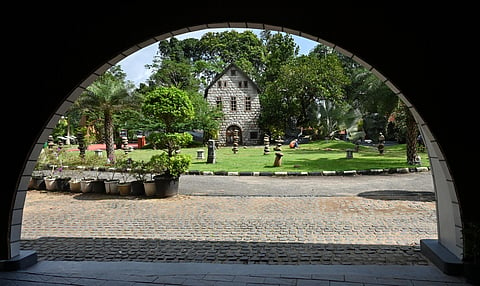
Ever seen Virginia Woolf, Vincent van Gogh, Ernest Hemingway, Kevin Carter, and Rajalekshmi in one room, all passionately discussing life, despair, and how suicide is never the answer? Wondering how different it might have been if they had held on for just one more moment?
Step out, and the doors open to a house full of walls glimmering with 25,000 tiny sculptures representing the chemical that keeps us moving and feeling — the dopamine house. Charts and displays explain what happens when there is too much or too little of it, how imbalance can twist the way people think or act.
And that is just one corner of this two-acre world, the Psychopark. Half an hour’s drive from the city, along a winding road that weaves through the hills and calm outskirts of Thiruvananthapuram, stands this unique park in Vellanad — India’s first psychology-themed park.
“It’s not just India’s first, this is the world’s first psychology-themed park. It is also an edutainment park,” says C Lekha, CEO of the establishment.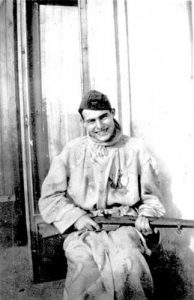
“Mirror For Your Mind, that’s our tagline. Everything here is curated with great care, designed for anyone who wants to understand the human mind and behaviour through engaging, relatable experiences,” she adds.

Neuropsychology, he explains, is at the heart of the park’s vision. It’s important because when people begin to understand how the brain functions, they can free themselves from superstition. “After all, the notions of god and evil both arise within the brain, and recognising that is the first step toward a more rational, enlightened, developed society,” says Madhujan, who is also a recipient of the 2018 National Award for Outstanding Achievement for his work in preventing alcoholism and substance abuse.
The exhibits here unfold like chapters in the human mind. It begins with early practices from the extraction of the stone of madness — a sculptural interpretation of the ancient trephination process of drilling or scraping a hole in the skull — to depictions of traditional Indian approaches to mental illness.
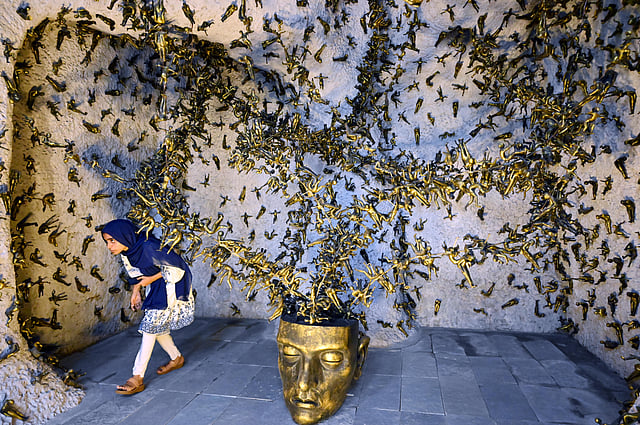

Other sections turn psychology into an interactive experience. Instruments for colour-deficiency tests, maze learning, and depth perception are displayed alongside spaces dedicated to cognitive behaviour therapy and addiction studies.
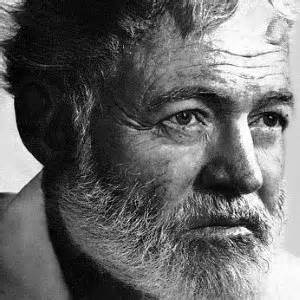
The Brain Museum details the brain’s regions and their functions, while the Psychosocial Museum houses artefacts that trace human evolution. A portrait drama theatre, a library with a curated collection of books, an art gallery, a corner dedicated to Sigmund Freud, a nano-sculpture, and photographs of pioneers who shaped modern psychology are also part of the experience.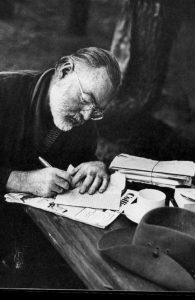
“The official inauguration has not been held yet. We hope to do it by January and are waiting to confirm a prominent guest,” says Madhujan.
They also have further ambitious plans for Psychopark, including a brain installation that visitors can walk through. A section dismantling pseudo-psychology is also in the plans.
“We are also working towards promoting psycho-tourism,” Madhujan says. “This concept can promote mental and emotional awareness, which is more important today. It can grow even bigger than health tourism. It is an innovative idea, which is perhaps why convincing the state government has been a challenge so far. But hopefully, that will change soon,” he says.
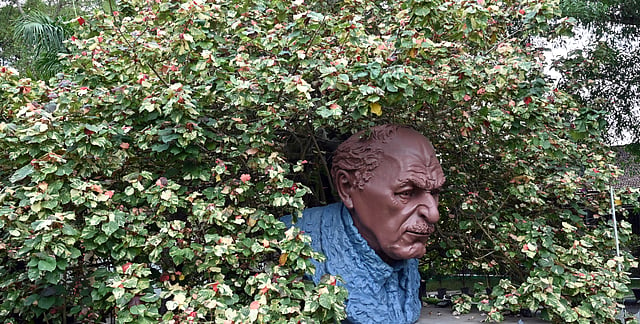
After the tour, visitors can also interact with the director and ask questions about any aspect of the human mind. Entry packages start at I650 for adults, I600 for college students, I500 for high school students, and I450 for school groups. The fee includes a traditional mini-sadhya with payasam, along with tea and snacks. For outstation visitors, overnight stays are available for I1,600, which includes accommodation, four meals,
and a campfire experience.
Scott Jones
Smoking cigarettes and having a drink cooling off after a long day’s work in the tropical sun back at camp, veterans building a highway to connect the Florida Keys to the mainland in September 1935 noticed the wind picking up, and heard reports of bad weather on its way. The next morning “not a blade of grass” remained.
The Labor Day Hurricane of 1935 was the most intense Atlantic hurricane on record, only broken over 50 years later, culminating in a devastating storm surge that swept all before it. Unfortunately, almost 700 workers, World War One veterans, were before it, with only “match-box wooden shacks” for shelter.
Among the first to turn up and aid with rescue and recovery, and to witness the horrific catastrophe, was writer Ernest Hemingway who lived in Key West and owned a fishing boat. He had also served and was wounded in World War One giving him a connection to these vets. Writing that same month in the socialist magazine New Masses, Hemingway hammers out on his typewriter his most impassioned and hard-hitting non-fiction work, “2,800 words of dynamite”, as he later called it.
Under the headline: “Who Murdered The Vets?” he contrasts the “wealthy people… such as President Hoover and President Roosevelt” who “do not come to the Florida Keys in hurricane months” because they know of the danger to their yachts and themselves, with the vets who had no choice and knew no better. Hemingway writes scathingly: “Veterans, especially the bonus-marching variety of veterans are not property. They are only human beings and all they have to lose are their lives.”
It was not until late the next day after the hurricane that any boat could get to Matecumbe Key where the camps were. What they found were hundreds of dead veterans in grotesque states and places. They had nowhere to shelter and nothing to stop them from being washed away. Hemingway said: “You found them everywhere and in the sun all of them were beginning to be too big for their blue jeans and jackets that they could never fill when they were on the bum and hungry… I would like to make whoever sent them there carry just one out through the mangroves.” Some of the surviving vets compared it to what they had seen during the war.
The veterans were there as part of President Franklin D Roosevelt’s New Deal program to get the unemployed back to work during the 1930s depression. But they had to campaign just to get that. In 1924 an act awarded bonuses to World War One veterans but not for 20 years, an insult at the time but a bearable one, given most had jobs. But by the early 1930s, many were out of work following the Wall Street Crash.
A so-called ‘Bonus Army’ numbering 43,000 marched on Washington DC in 1932 demanding the bonus now, but was brutally crushed by the US Army led by General Douglas MacArthur on the order of President Hoover. There was pressure on new president Roosevelt to act, he did so by sending the vets to work on projects like the Florida highway, seeing it as an opportunity to get them out of the way.
To give the scale of the tragedy, Hemingway says in Camp Five only eight out of 187 survived. Everyone knew when hurricane season was and there had been storm warnings and hurricane flags all over the Keys, meaning there was time to evacuate the vets. The subsequent investigation was a whitewash, completed just days afterwards and failing to call any witnesses.
A lack of concern for the victims of extreme climate events still remains and millions more every year are potential victims due to climate change. 90 years on we should remember who murdered the vets and fight to change the system that allowed it to happen.
Community Theatre at Woodbury continues its 12 season with a staged reading of “Hemingway’s Promise,” written by B.L. Walker for one weekend only. The reading is performed by a talented cast directed by Sarah Roberts. The final performance will be the Sunday matinee at 2 p.m.
This production is sponsored in part by the Woodbury Junior Women’s Club.
Robards writes that she first met the playwright, Bettie Snyder (a.k.a B. L Walker,) in 2008 when she filled in for an actor in a play reading at the Sharon Library. The play, called “Demons” at the time, was an early version of “Hemingway’s Promise.” This play reading was Robard’s introduction to what she deems a “deep and thought-provoking play.
.jpg)
“‘Hemingway’s Promise’ is biographical in nature and centered on the imagined last hours of Hemingway’s life and his subsequent suicide,” the director continues. “It deals with themes of family dysfunction, marital infidelities, transgender issues, friendships both close and complicated, and the political and historical upheavals of the time, which influenced much of Hemingway’s life and writing.”
So expect lots of heaviness in this exploration of the final hours of the author’s life, although there are bits of comedy to lighten the mood. As with most biographical plays, I learned so much about the person that it memorializes as it offers insight into their character.
Robards directs this piece in which she has always believed with “efficiency” and a keen eye to the details. I love that the players sit at the side of the stage awaiting their entrances, well lit by operator Dennis Walsh. The final scene of the (offstage) suicide features a variety of important lines delivered on top of each other and is extremely effective.

Will Jeffries (pictured above) makes his CTAW debut in the role of Ernest Hemingway and his performance is a master class in how to fully embody an historical (and flawed) figure. Jeffries has a slew of acting and directing credits (Do you remember him as the evil Damon Grenville on “General Hospital?”) and was memorable in “Frost/Nixon.” It is an honor to watch him perform in any role.
Joyce Schroeder makes her CTAW debut in the role of Hemingway’s mother Grace. Schroeder, who recently played Sister Berthe in Newbury Theater Company’s “The Sound of Music,” describes her character as “a piece of work,” and she hit the nail on the head. Grace is a controlling parent, who gave up a promising singing career to have six children.
Missy Cowan does very well with the role of Hadley Richardson Hemingway, called “Hash,” who was the author’s first wife. The couple wed when he was 22 and she was 28, and were married for six years. Cowan notes in her program bio that Hadley was believed to be Ernest’s one true love, was a friend of the chef Julia Child, and that she was the grandmother to Margaux and Muriel Hemingway.
David Gordon makes his CTAW debut in the role of the editor Ezra Pound. Pound attended the University of Pennsylvania, studying Latin, and became an influencer and Fascist. Gordon recently retired from legal practice and is not pursuing his theatrical interests, including playwriting.
Bibiana Andreu returns to CTAW to play the second wife of Hemingway, Pauline Pfeiffer Hemingway. The stylish Pauline held a degree in journalism and wrote for Vogue magazine. The two were introduced by F. Scott Fitzgerald and had two sons together.
In his CTAW debut, Alex Gellweiler takes on the role of the youngest son of the author, Gregory/Gloria, a person questioning their gender. His character went on to become a medical doctor and have eight children. Gellweiler attended the Hartford Conservatory for Musical Theater and acted onstage at The Gary-The Olivia Theater in Bethlehem. He is a member of the Screen Actors Guild and has worked in film and television.
Woodbury resident Caitlin Williams has a wonderful stage presence in the role of the third wife of Hemingway, Martha Gellhorn Hemingway. Williams serves as President of the Board of Directors at CTAW.
What a delight it was to see the talented Roger Grace in the role of Gary Cooper. Grace returns to CTAW to take on this role. Recent credits include Peter Quince in Sharon and Albin in “La Cage” at the Arts at Angeloria’s.
The story is told in one scene, Hemingway’s living room in Ketchum, Idaho. It takes place in one day, Sunday, July 2, 1961, between the hours of midnight and dawn.
Kris Geddes served as the producer and stage manager of the performance and spoke to the audience before and after the show. Lighting and sound design was done by Bill Geddes.
Robards, who has been a Woodbury resident since 1986, kept in touch with the playwright through the years and planned to bring it to CTAW in June of 2022. When COVID affected several cast members, the reading had to be postponed. Sadly, B.L. Walker, who was looking forward to attending a performance, passed away shortly thereafter.
The script contains some strong language and explores mature themes, including suicide. It is recommended for adult audience. The script was copyrighted in 2016.
“Hemingway’s Promise” is presented without an intermission. It closes on Oct. 19 at 2 p.m. at Woodbury Old Town Hall, across from the Post Office. The address is 5 Mountain Road in Woodbury. Tickets at ctaw-ct.org Donations for the American Foundation for Suicide Prevention are accepted in hopes of halting the so called “Hemingway curse.”
Nancy Sasso Janis has been writing theater reviews since 2012 as a way to support local venues, and she posts well over 100 reviews each year. She became a member of the Connecticut Critics Circle in 2016. Her contributions of theatrical reviews, previews, and audition notices are posted in the Naugatuck Patch as well as the Patch sites closest to the venue. She was a feature writer and theater reviewer for the Waterbury Republican-American newspaper. Follow the reviewer on her Facebook pages Nancy Sasso Janis: Theatre Reviewer and Connecticut Theatre Previews and on Twitter @nancysjanis417Check out the CCC Facebook page.

(Photo by Central Press/Getty Images)
This post is adapted from Mr. Right’s weekly newsletter, which tackles modern manhood for normal guys in a not-normal world. If you have not already subscribed for free, please consider doing so here.
There is a reading crisis among men. Instead of losing themselves in novels and works of non-fiction, many men turn to sports betting, social media, video games, and porn as sources of entertainment. It’s depressing to even talk about, let alone witness.
Perhaps the biggest reason men no longer read, save for the fact that the modern world gives us infinite distractions online, is that the publishing industry strictly caters to women. Not only are the authors themselves female, but also the publishing houses, from the assistant editors to top executives. Their publicity departments are also, by and large, run by women.
It’s a perfect storm. Women read the most, while men gamble and play video games. Women run the publishing industry, so all the new books are feminine. Even the children’s books are geared toward girls. Gone are the days of children’s author Eric Carle and his “Very Hungry Caterpillar,” or Shel Silverstein and “The Giving Tree.” (Subscribe to MR. RIGHT, a free weekly newsletter about modern masculinity)
But I’m here to tell you hope is not lost.
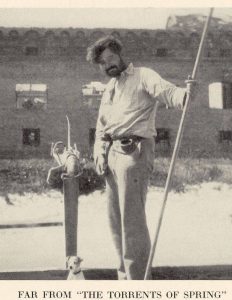
The first step to Making Men Read Again is a baby one: pointing out that there are books published today that appeal to men. If you comb through the New York Times bestseller list or Amazon’s top sellers, you probably won’t find a good book geared toward men. But if you know where to look, there are deep cuts everywhere.

Picture dated of the 60’s showing American writer Ernest Hemingway (L) with his wife on board the “Constitution” crossing the Atlantic Ocean toward Europe. (Photo by AFP) (Photo by -/AFP via Getty Images)
Tyrant Books, whose founder, Giancarlo DiTrapano, died in 2021, has a slate of literature written by men. “Fuccboi” by Sean Thor Conroe. “Preparation for the Next Life” by Atticus Lish. “The Sarah Book” by Scott McClanahan. “Essays and Fictions” by Brad Phillips. “Supremacist” by David Shapiro. All of these books are masculine. Another great writer for men who you won’t see on the splashy bestseller lists is Callan Wink, who writes about rugged characters in the American West. His latest novel is a crime story in Yellowstone.
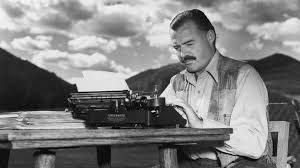
And, who says you have to read anything recent? The best books are the oldest ones. And the good news is, many of the oldest ones were written by men. You don’t even have to travel back in time too far. The 20th century alone provided classics galore that appealed to men. The now much-maligned cadre of straight, white, male authors is a good place to start: William Faulkner, Ernest Hemingway, Jack London, John Updike, Phillip Roth, Cormac McCarthy, David Foster Wallace.
The second step is to focus on future generations, which means getting kids hooked on reading as soon as possible. Start ‘em young. I, for one, am going to make sure my nephew has access to the great works. He’ll be reading Hemingway and Fitzgerald by the time he’s in middle school.
Even if he’s not fully comprehending the plots, the themes, the subtext, it doesn’t matter. All the better, actually. He can revisit them in the future when he’s more developed as a reader. The key is to spark a love for it. (Subscribe to MR. RIGHT, a free weekly newsletter about modern masculinity)
It’s also crucial to keep reading fun. I became hooked on reading when I was young. I kept up the habit after all these years because if I ever got bored of a book, I dropped it. I never had an OCD fixation on finishing to the final page. If it was boring, I picked up a new one. If it was too easy, I cracked open a book way beyond my reading level. If that book was too difficult, I dialed it back and found something easier to read, like “The Very Hungry Caterpillar.”
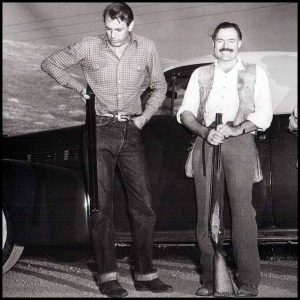
The most important thing was that I never got bored of reading. Boys in school are forced to finish books, even if the works are feminine and woke. But if they are given the complete freedom to explore literature outside of school confines – and are regulated with regard to internet use, video games, and social media – there’s a decent chance they’ll foster a love for reading.
Did you enjoy this post? Follow Mr. Right on X and consider checking out his full weekly newsletter, available here: MrRight.DailyCaller.com